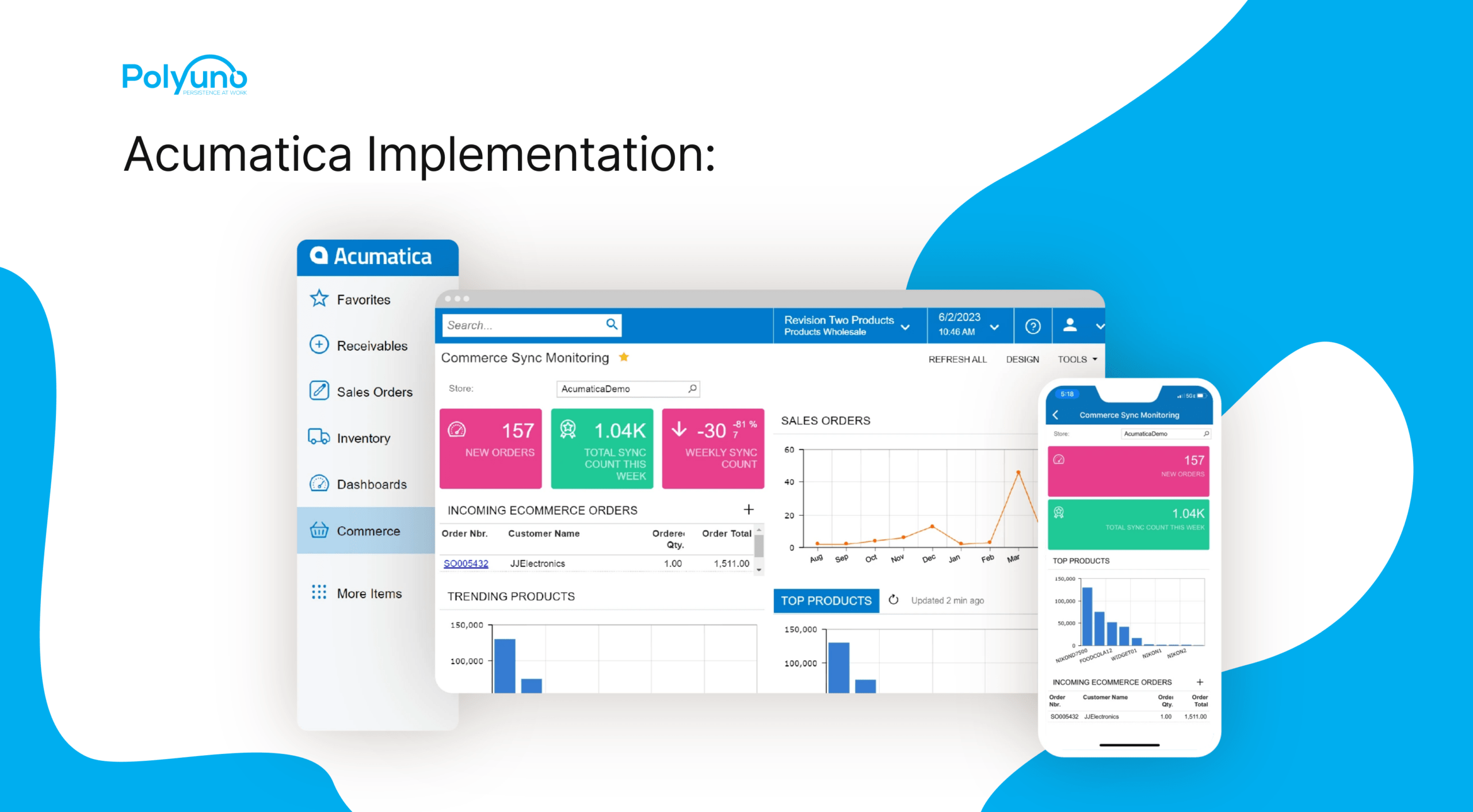ESG reporting is a term that has gained significant traction in recent years. ESG stands for Environmental, Social, and Governance, and it is a framework that helps stakeholders understand how an organization is managing risks and opportunities related to these criteria. ESG reporting is a way for companies to disclose their non-financial performance and demonstrate their commitment to sustainability and responsible business practices.
ESG reporting is becoming increasingly important for companies as investors, customers, and other stakeholders demand greater transparency and accountability. Companies that report on their ESG performance are able to demonstrate their commitment to sustainability and responsible business practices, which can help them attract and retain customers, investors, and employees. ESG reporting can also help companies identify areas where they can improve their performance and manage risks more effectively. By reporting on their ESG performance, companies can show that they are taking a long-term view and are committed to creating value for all stakeholders, not just shareholders.
What is ESG Reporting?

ESG reporting, or environmental, social, and governance reporting, is a way for organizations to disclose information about their non-financial performance. ESG reporting is becoming increasingly important for companies as stakeholders demand more transparency and accountability around environmental and social issues.
Environmental Factors
Environmental factors refer to a company's impact on the natural world. This includes issues such as pollution, deforestation, and carbon emissions. ESG reporting frameworks require companies to disclose information about their environmental impact, including their use of natural resources, waste management practices, and efforts to reduce their carbon footprint.
Social Factors
Social factors refer to a company's impact on society. This includes issues such as human rights, labor standards, and diversity. ESG reporting frameworks require companies to disclose information about their social impact, including their efforts to promote diversity and inclusion, protect human rights, and ensure that their supply chains are free from forced labor.
Governance Factors
Governance factors refer to a company's internal management and decision-making processes. This includes issues such as corporate governance, compliance, and reputation. ESG reporting frameworks require companies to disclose information about their governance practices, including their board structure, executive compensation, and efforts to prevent corruption.
ESG reporting is essential because it allows stakeholders to hold companies accountable for their non-financial performance. By providing transparency around environmental, social, and governance issues, ESG reporting helps to build trust and accountability between companies and their stakeholders. ESG scores, based on a company's ESG reporting, are increasingly used by investors to evaluate a company's long-term sustainability and potential risks.
The Sustainability Accounting Standards Board (SASB) provides a set of reporting standards for companies to use when disclosing their ESG performance. These standards are designed to be industry-specific and cover a range of issues, from carbon emissions to labor standards. Companies can use these standards to ensure that their ESG reporting is accurate, comparable, and relevant to their industry.
Why is ESG Reporting Important?
ESG reporting is essential for companies to measure their environmental, social, and governance performance. It provides stakeholders with valuable information about a company's sustainability practices and helps them make informed decisions. Here are a few reasons why ESG reporting is essential:
Investors
Investors are increasingly interested in investing in companies that have strong ESG performance. They use ESG data to evaluate a company's long-term sustainability and risk management practices. According to a Global Sustainable Investment Alliance survey, sustainable investments reached $31 trillion in 2018, up 34% from 2016. ESG reporting helps companies attract these investors and access capital markets.
Financial Performance
ESG reporting can also positively impact a company's financial performance. A study by MSCI found that companies with strong ESG performance had higher profitability and lower risk than their peers. ESG reporting can help companies identify areas where they can improve their sustainability practices and reduce costs.
Competitive Advantage
ESG reporting can also give companies a competitive advantage. Companies with strong ESG performance are more likely to attract customers concerned about sustainability. They are also more likely to retain employees who are committed to working for a socially responsible company. ESG reporting can help companies differentiate themselves from their competitors and build a strong brand.
In summary, ESG reporting is essential for companies to attract investors, improve their financial performance, and gain a competitive advantage. It provides stakeholders with valuable information about a company's sustainability practices and helps them make informed decisions.
ESG Reporting Frameworks
ESG reporting frameworks are used by organizations to publicly disclose their environmental, social, and governance (ESG) performance metrics. Several ESG reporting frameworks are available, each with its own guidelines and standards. This section will explore some of the most widely recognized ESG reporting frameworks.
GRI Standards
The Global Reporting Initiative (GRI) Standards are widely considered to be the gold standard in sustainability reporting. They provide comprehensive guidelines for organizations to report on their ESG performance. The GRI Standards cover a wide range of topics, including governance, human rights, labor practices, environmental impacts, and more. The GRI Standards are updated regularly to reflect changes in the sustainability landscape.
Sustainability Accounting Standards Board
The Sustainability Accounting Standards Board (SASB) provides industry-specific ESG reporting standards for companies. The SASB standards are designed to be industry-specific and tailored to each industry's unique ESG risks and opportunities. The SASB standards cover a wide range of topics, including climate change, labor practices, and supply chain management.
International Sustainability Standards Board
The International Sustainability Standards Board (ISSB) is a new initiative launched by the International Financial Reporting Standards (IFRS) Foundation. The ISSB is tasked with developing a globally recognized set of sustainability reporting standards. The ISSB will work closely with other ESG reporting frameworks to ensure its standards align with existing frameworks.
IFRS Sustainability Disclosure Standards
The IFRS Sustainability Disclosure Standards are a new set of sustainability reporting standards developed by the IFRS Foundation. The standards focus on providing investors with decision-useful information on a company's sustainability performance. The IFRS Sustainability Disclosure Standards are designed to be complementary to other ESG reporting frameworks, such as the GRI Standards and SASB standards.
Global Reporting Initiative Standards
The Global Reporting Initiative (GRI) Standards are widely recognized as the most comprehensive ESG reporting framework available. The GRI Standards cover a wide range of topics, including governance, human rights, labor practices, environmental impacts, and more. The GRI Standards are updated regularly to reflect changes in the sustainability landscape.
In conclusion, ESG reporting frameworks are essential for organizations to disclose their ESG performance metrics publicly. Each ESG reporting framework has its own set of guidelines and standards, and organizations should choose the framework that best suits their needs. The GRI Standards, SASB standards, ISSB, IFRS Sustainability Disclosure Standards, and Global Reporting Initiative Standards are some of the most widely recognized ESG reporting frameworks available.
Regulations and Compliance
ESG reporting has gained significant momentum in recent years, and regulations and compliance requirements have been put in place to ensure companies are transparent in their sustainability practices. This section will cover some of the regulations and compliance requirements for ESG reporting.
Corporate Sustainability Reporting Directive
The Corporate Sustainability Reporting Directive (CSRD) is a proposed regulation by the European Union that aims to enhance the quality and consistency of sustainability reporting by companies. The CSRD, which is set to come into effect in 2023, will replace the existing Non-Financial Reporting Directive (NFRD) and expand the scope of reporting requirements. Under the CSRD, companies will be required to report on a wider range of ESG factors, including social and employee matters, human rights, and anti-corruption and bribery. The directive will also introduce mandatory digital reporting and assurance requirements for large companies.
U.S. Securities and Exchange Commission
The U.S. Securities and Exchange Commission (SEC) has been actively working on ESG reporting requirements in the United States. In March 2021, the SEC announced the creation of a Climate and ESG Task Force to identify potential ESG-related misconduct. The SEC has also issued guidance on ESG disclosure, emphasizing the importance of materiality and consistency in reporting. While the SEC has not yet introduced mandatory ESG reporting requirements, many companies are already voluntarily disclosing ESG information in their filings.
In addition to the CSRD and SEC, there are other regulations and compliance requirements that companies need to be aware of when it comes to ESG reporting. For example, the Task Force on Climate-related Financial Disclosures (TCFD) provides guidance on climate-related financial disclosures, while the Global Reporting Initiative (GRI) offers a framework for sustainability reporting. Companies should also be aware of local regulations and requirements in the countries where they operate.
Overall, regulations and compliance requirements for ESG reporting are evolving rapidly. Companies that are proactive in their ESG reporting and transparent about their sustainability practices are likely to be better positioned to meet these requirements and build trust with stakeholders.
Benefits of ESG Reporting
ESG reporting is becoming increasingly important for companies, as it provides a way to measure and communicate their environmental, social, and governance performance to stakeholders. Companies can leverage several benefits of ESG reporting to improve their business operations.
Brand Loyalty
One of the main benefits of ESG reporting is that it can help companies build brand loyalty among their customers. Companies can attract customers who share these values by demonstrating a commitment to sustainability and social responsibility. This can result in increased customer loyalty and repeat business.
Risk Management
ESG reporting can also help companies manage their risks more effectively. By identifying and addressing potential environmental, social, and governance risks, companies can reduce their exposure to legal and reputational risks. This can help to protect the company's bottom line and preserve its long-term viability.
Employee Engagement
ESG reporting can also help companies to engage their employees more effectively. By providing employees with a clear understanding of the company's values and goals, ESG reporting can help to create a sense of purpose and meaning in their work. This can result in increased employee engagement and productivity.
Overall, there are many benefits to ESG reporting, including improved brand loyalty, better risk management, and increased employee engagement. By leveraging these benefits, companies can improve their business operations and create long-term value for their stakeholders.
Challenges of ESG Reporting
ESG reporting is not without its challenges. While companies have started to take ESG reporting seriously, a number of issues still need to be addressed. This section will discuss some of the challenges of ESG reporting.
Socially Responsible Investing
One of the challenges of ESG reporting is that investors often use it to make decisions about which companies to invest in. This is known as socially responsible investing (SRI). However, there is no standard definition of what constitutes SRI. As a result, companies may report on different ESG factors depending on the investor they are trying to attract. This can make it difficult for investors to compare companies and make informed decisions.
Corporate Disclosure
Another challenge of ESG reporting is corporate disclosure. Companies may not disclose all of their ESG information because they do not have the data or because they do not want to reveal damaging information. This can create a lack of transparency, which can make it difficult for investors to make informed decisions. In addition, companies may not disclose their ESG information consistently, making it difficult for investors to compare companies.
ESG Scores
ESG scores are another challenge of ESG reporting. Investors use ESG scores to evaluate a company's ESG performance. However, there is no standard methodology for calculating ESG scores. As a result, different rating agencies may use different methodologies, which can lead to different scores for the same company. In addition, ESG scores may not take into account all of the ESG factors that are important to investors.
Overall, ESG reporting is an important tool for investors to evaluate a company's ESG performance. However, there are still a number of challenges that need to be addressed in order to make ESG reporting more effective. Companies need to be transparent about their ESG information, and there needs to be a standard methodology for calculating ESG scores. By addressing these challenges, ESG reporting can become a more useful tool for investors and companies alike.
ESG Reporting and Climate Change
ESG reporting has become increasingly important in the business world, particularly in relation to climate change. Climate change is a significant concern for many investors, and ESG reporting can help them identify companies that are taking steps to address this issue.
Climate-related Disclosure
One important aspect of ESG reporting is climate-related disclosure. This refers to the information that companies provide about their greenhouse gas emissions, energy usage, and other factors related to climate change. Investors use this information to evaluate a company's environmental impact and to identify potential risks and opportunities.
Many companies now include climate-related disclosure in their annual reports or other public filings. Some also provide more detailed information through sustainability reports or other specialized disclosures. This information can be presented in a variety of formats, including tables, charts, and narrative descriptions.
Investors may also use third-party ratings and rankings to evaluate a company's climate-related disclosure. These ratings and rankings can provide a standardized way to compare companies and identify leaders and laggards in the field.
Overall, climate-related disclosure is an important part of ESG reporting and can help investors make more informed decisions about the companies they choose to invest in. By providing clear and comprehensive information about their environmental impact, companies can demonstrate their commitment to addressing climate change and build trust with investors.
Other ESG Factors to Consider
When it comes to ESG reporting, there are several other factors to consider besides climate change. These include ethical business practices, deforestation, pollution, financial risk, employee training, UNGC, and non-financial information.
Ethical Business Practices
Ethical business practices refer to a company's commitment to conducting business in a responsible and sustainable manner. This includes avoiding corrupt practices, promoting transparency, and upholding human rights.
Deforestation
Deforestation is the clearing of forests for agricultural or industrial purposes. Companies can mitigate this risk by implementing sustainable forestry practices and using alternative materials.
Pollution
Pollution refers to the release of harmful substances into the environment. Companies can reduce their environmental impact by implementing sustainable waste management practices and reducing their carbon footprint.
Financial Risk
Financial risk refers to the potential impact of ESG factors on a company's financial performance. Companies can mitigate this risk by conducting thorough risk assessments and implementing sustainable business practices.
Employee Training
Employee training refers to a company's commitment to providing its employees with the knowledge and skills necessary to promote sustainability and responsible business practices.
UNGC
The United Nations Global Compact (UNGC) is a voluntary initiative that encourages companies to adopt sustainable and socially responsible policies and practices.
Non-Financial Information
Non-financial information refers to a company's ESG performance and impact. This includes information on environmental, social, and governance factors and the company's sustainability goals and initiatives.
Overall, companies that prioritize ESG factors are better positioned to manage risk, attract investors, and build long-term value. By considering these other ESG factors, companies can ensure that their ESG reporting is comprehensive and accurate.
How Polyuno Helps
Polyuno is a company that provides ESG reporting and materiality services worldwide. Their services help clients to effectively communicate their ESG performance to stakeholders and identify the most important ESG issues to their business.
Polyuno's team of experts works with clients to assess their ESG risks and opportunities, develop ESG strategies, and implement ESG reporting frameworks. They also provide ongoing support to help clients improve their ESG performance over time.
Polyuno's ESG reporting and materiality services are designed to help clients meet the growing demand for ESG disclosure from investors, regulators, and other stakeholders. By providing transparent and accurate information about their ESG performance, clients can build trust and credibility with their stakeholders and improve their overall reputation.
Polyuno's services are tailored to each client's specific needs and goals. They use a range of tools and methodologies to help clients identify the most important ESG issues to their business and develop strategies to address them. Some of the key services that Polyuno offers include:
- ESG materiality assessments: Polyuno helps clients identify the most important ESG issues to their business based on their industry, geography, and stakeholder expectations. They use a range of data sources and stakeholder engagement techniques to ensure that their assessments are comprehensive and accurate.
- ESG strategy development: Polyuno works with clients to develop ESG strategies that are aligned with their business goals and stakeholder expectations. They help clients identify the most effective ways to address their ESG risks and opportunities and develop action plans to implement their strategies.
- ESG reporting frameworks: Polyuno helps clients develop ESG reporting frameworks that are aligned with industry standards and stakeholder expectations. They provide guidance on the most effective ways to report on ESG issues and help clients develop metrics and indicators to track their performance over time.
Book a call today to avail Polyuno's ESG and Materiality Services.




